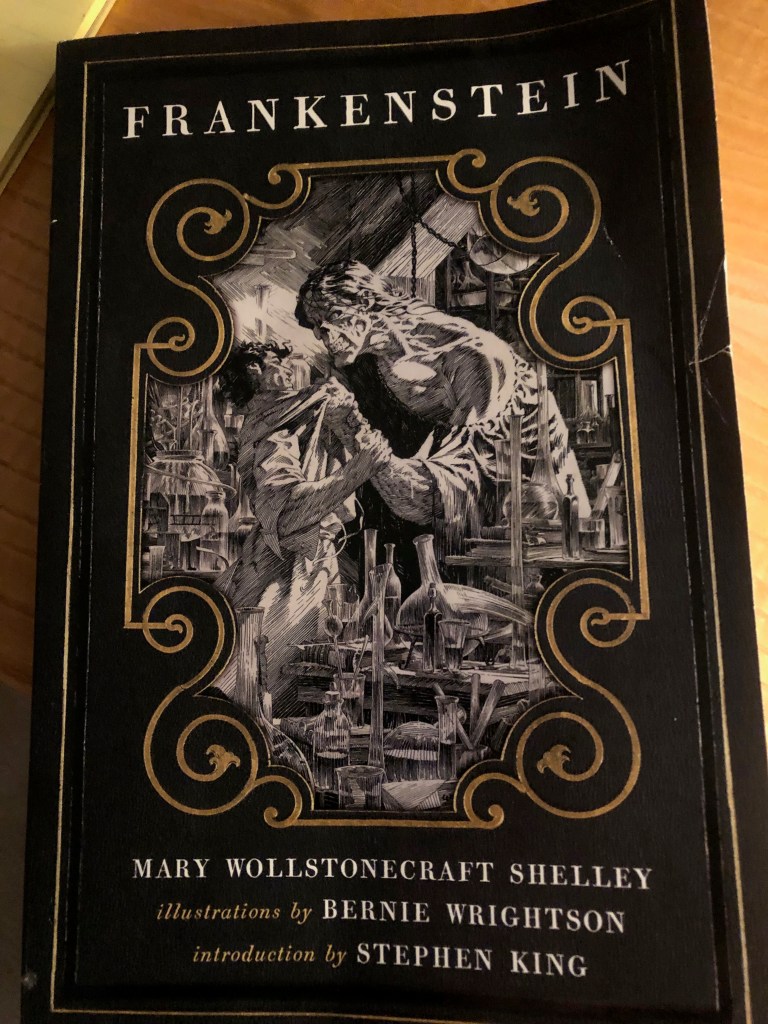As is often the case, this post is inspired by a book and the discussion we had about it at our family book club. We read Remarkably Bright Creatures by Shelby Van Pelt. The story uses an interesting device in that one of the narrators is an octopus named Marcellus. Marcellus is intelligent and insightful. One either buys into the conceit, or one doesn’t. The success of the book for the reader will likely turn on that.
Based on the reactions of the members of our book club, and from what I see on Goodreads, most people had no problem with it and, in fact, were charmed by Marcellus’ voice in the novel. I, on the other hand, had some trouble with it. I think suspension of disbelief only takes me so far. I don’t love fantasy as a genre, though this book wasn’t that, anthropomorphizing (if that is a word) an octopus veered into fantasy, but the author did not create a different world. In reality it was more of a family saga in which lost souls become connected with the help of the octopus. I liked the family part but could have done without Marcellus.
I wonder how much of my issue comes from the fact that I am not that much of an animal person. I have compassion for animals and have loved my cats, but I would not call myself an animal lover. I am not taken by every dog I pass as I walk in my neighborhood. I am not confused about my priorities – humans rank higher for me in the animal kingdom than other species.
We had this discussion with friends just this past weekend. Sadly, they had to put down their dog a few months ago, a beloved pet of many years. The woman of the couple was still grieving the loss and was keeping mementos of him around the house. The guy mostly felt bad for his wife and daughter. “He was a dog to me,” he explained almost sheepishly. He was saddened by the dog’s suffering and wished it hadn’t gone that way, but there was a limit to his grief. I understood what he was saying. For some a pet is equal to a family member. Others may have a range of emotion: from not wanting anything to do with dogs or cats, to loving them but not the same way as another human, to treating their pet with the same love and attention as they would a child. I would put myself in that middle category. I wrote about my relationship with Raffa, the cat we had to put down months ago, previously on this blog. I couldn’t bear to see her suffer, but it wasn’t anything close to how I feel about family or friends.
Aside from how we view pets, there are other issues we discussed at book club in the context of exploring Remarkably Bright Creatures. Marcellus lived in an aquarium – in a contained habitat. We debated the ethics of zoos and aquariums. When I was growing up little thought was given to how zoo animals were housed. The cage for a tiger might be just large enough for him or her to pace back and forth. It was sad and it was clear the animal was miserable. We have progressed from there. Most modern zoos create large areas for the animals to roam with some configuration of water features and barriers to allow visitors to view them. Even with that, though, the animals are clearly not in their natural habitats. Lions wouldn’t live in the Bronx if not for the zoo, but at least they are not confined to a cage – they get fresh air and they are surrounded by grasses and trees. Some in our group were not comfortable with even this improved arrangement, they felt that animals should be free. At the same time, a couple of points in support of zoos were made.
In allowing people, especially children, to see exotic animals in person it can spur interest and provide an educational opportunity. In doing so, people may be motivated to be protective of the animals – heightening awareness of imperiled species and their environments.
In addition, zoos do research and partner with other entities that enhance our understanding of the animals. Sometimes zoos take in animals that can no longer survive in the wild.
I also wonder if we are romanticizing life in the wild. For example, how long is life expectancy for lions that live freely compared to those in captivity? If the animal has the company of its own species, is well-fed, receives medical care and lives in a comfortable physical environment, maybe they aren’t unhappy at all. Maybe a zoo isn’t so bad. Of course, if the animal is mistreated or neglected, then the calculus changes.
I think we all agreed that we were uncomfortable with animals performing tricks – like whales at a seaquarium. It is one thing to schedule feedings so that an audience can watch, it is another to make the whale, dolphin or seal leap, catch or clap for our amusement and a reward. I remember once going to the Catskill Game Farm years ago where chimps were dressed up in motorcycle garb and rode bikes. I found it very disturbing. I’m happy to say that act no longer exists, and the game farm no longer houses animals. It has been transformed into a campground. Given what we saw there that is a better use of the space.
Like many things it comes down to human behavior and judgment. Zoos and seaquariums can be great resources if the people running them are ethical and compassionate. If humans fail to meet that standard, then the animals suffer and there need to be consequences for that failure. Those individuals need to be held accountable. I don’t think the basic concept of a zoo or aquarium is problematic.
What do you think? If you read Remarkably Bright Creatures, did you enjoy it?








